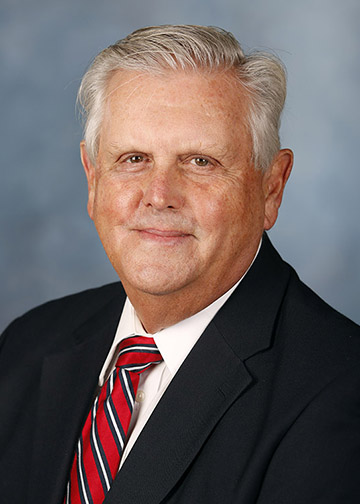
Education Commissioner Terry Holliday
The 2013-14 school year is upon us, and one thing is certain: It’s going to be an exciting and busy school year for Kentucky public school students, educators and parents.
Many new and continuing initiatives will require the time and attention of the Kentucky Department of Education (KDE), school districts, schools and educators. All of these efforts support our ultimate goal in Kentucky: college and career readiness for ALL students. The 2014 Kentucky General Assembly also will convene during this school year, with discussions and decisions on the biennial state budget. As in the past, I will continue to advocate for additional funding and resources for our schools as they undertake major changes aimed at benefiting their students and the Commonwealth.
Here is a quick look at some of the major initiatives and undertakings this coming school year.
Professional Growth and Effectiveness System
We have elevated the expectations of our students with the Kentucky Core Academic Standards and corresponding assessments, and we have the same high expectations of our teachers, principals and superintendents. The Professional Growth and Effectiveness System (PGES), which will eventually provide all Kentucky educators with standards-based, consistent and fair feedback on their practice linked with personalized professional learning opportunities, is our mechanism for doing that.
PGES for teachers and principals was field tested in 54 districts last year and is being piloted statewide this school year. As part of the statewide pilot, at least 10 percent of the schools in each district will implement PGES. The system is scheduled to be implemented statewide without consequences in all schools in 2014-15. Full statewide implementation with consequences for accountability is scheduled for the 2015-16 school year.
Next-Generation Science Standards
The Kentucky General Assembly, as part of Senate Bill 1 (2009), mandated new academic standards in all subjects.
At its June 5 meeting, the Kentucky Board of Education adopted new science standards incorporating them in the Kentucky Core Academic Standards.
The Next-Generation Science Standards (NGSS), which were developed by a coalition of experts in Kentucky and 25 other states over the past two years, are internationally benchmarked, rigorous, research-based and aligned with expectations for college and careers. They provide for a deeper understanding of content and application. (For more information about the standards, visit www.nextgenscience.org.)
The new science standards must clear the regulatory process before being implemented. A public hearing and comment period was held in July. The Administrative Regulation Review Subcommittee and the Interim Joint Committee on Education will review the standards next.
The NGSS are scheduled to be launched in schools through regional science networks in 2013-14. The networks will prepare teachers to teach the new standards using the same model that was used to prepare teachers to teach the English/language arts and mathematics standards several years ago. The current plan is to assess the new science standards for the first time in spring 2015.
Arts, social studies standards
This spring, the Social Studies Assessment, Curriculum, and Instruction
(SSACI) collaborative, a consortia of 22 states/organizations
(including Kentucky) published a framework for new social studies. The Chief Council of State School Officers coordinated the effort with the collaboration of the National Council for Social Studies and 14 other content organizations representing civics, economics, geography, and history.
Based on the framework, Kentucky teachers, postsecondary educators and social studies organization partners and are writing new standards which will be open for public review when completed. Revisions and edits will be made based on the feedback received, with the final social studies standards document due to be released late this fall.
The National Coalition for Core Arts Standards (NCCAS), a partnership of national arts and education organizations and media arts representatives, is developing the arts standards. A public review of the draft art standards is expected in early 2014, with final standards being released in spring 2014.
Once the arts and social studies standards are finalized, the Kentucky Board of Education will consider their adoption.
Supporting a higher compulsory attendance age
In July, more than 96 school districts opted to raise their compulsory attendance age from 16 to 18 starting in the 2015-16 school year, thereby paving the way for the policy to be implemented statewide no later than the 2017-18 school year.
KDE will be supporting and assisting districts as they prepare for this change and is committed to helping all districts implement or expand programs aimed at identifying and assisting students stay in school until they graduate or turn 18.
I encourage districts that have not done so already to raise their compulsory school attendance from age to 18 rather than wait.
Kindergarten screener
This year, all incoming public school kindergarteners are being assessed with the Common Kindergarten Entry Screener. The data collected from this screener gives kindergarten teachers specific knowledge of what their students know and can do at the beginning of the school year is especially helpful in guiding instruction. The screener is aligned to Kentucky’s School Readiness Definition and Early Childhood Standards.
The screener was administered to almost 32,000 incoming kindergarteners as part of a pilot last year. Of those, only 28 percent of students in the pilot were ready to succeed without some additional supports.
I can’t stress enough how critical it is that early learners are exposed to high-quality learning environments and developmentally appropriate experiences at home, in child care settings and in preschool to ensure their success in kindergarten and throughout their school experience. School readiness is the beginning of the continuum toward college/career-readiness, which is the goal for all our students.
2014 Kentucky General Assembly
Our Kentucky educators have done tremendous work in the last few years. With the implementation of the Kentucky Core Academic Standards, new assessments, a new accountability system and professional learning that supports all of that, we have asked educators to do much more with a whole lot less.
Going into the 2014 legislative session, we will be looking for your support first and foremost on increased and adequate funding. While the Kentucky Board of Education has yet to settle on its legislative priorities for the upcoming session among the things up for consideration are:
- restore SEEK to 2008 levels
- provide additional funding for Internet and broadband access to all school districts
- restore flexible focus funding from the current level of $90+ million to the 2008 level of $150+ million.
Many more initiatives and efforts are underway at KDE and in Kentucky’s schools and districts, but I hope these highlights give a glimpse of the work that is taking place. None of this work would be possible without the ongoing work and innovation of educators and the support and collaboration of parents and the community.
We are doing great work in Kentucky – work that is gaining the Commonwealth national attention, and, more importantly, benefitting our students. Please join me in continuing this work in the 2013-14 school year, and ensuring that all our students are college- and career-ready.


Leave A Comment